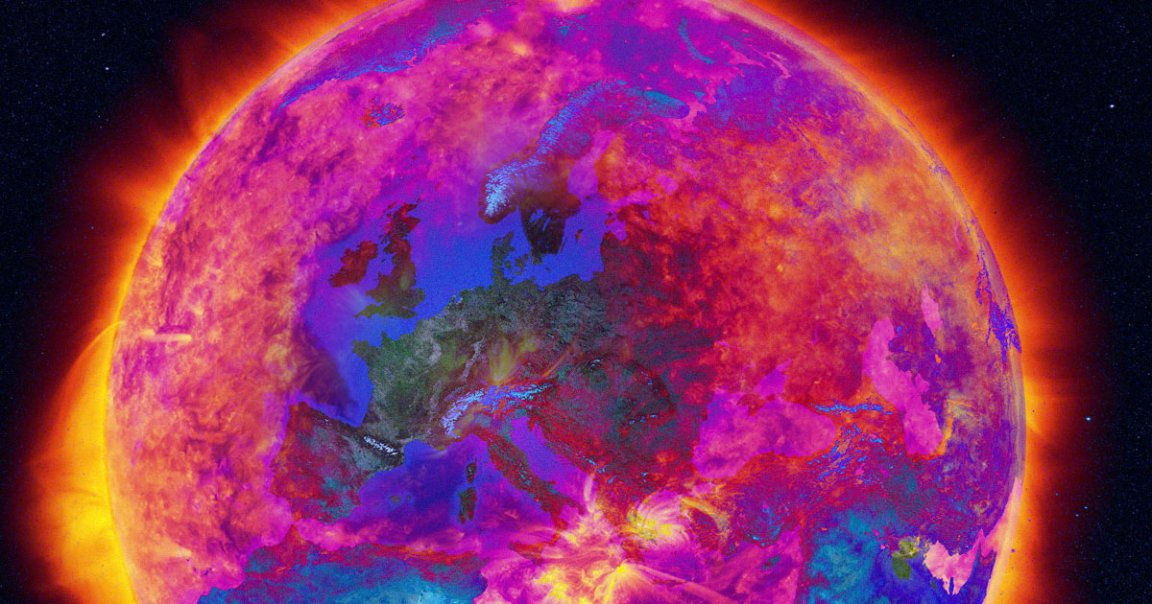
Record Temperatures
Europe is on fire, figuratively and — in the case of Spain’s Catalonia region — literally.
A town in southern France called Villevieille just reached the country’s hottest-ever recorded temperature of 45.1 degrees Celsius (113 Fahrenheit) — hotter than the recorded highs in the Saharan desert.
While some are saying, the extreme weather is directly linked to climate change. To others, it’s a warning shot of what’s yet to come.
Europe on Fire
The French government is on high alert. For the first time ever, the national weather service activated its highest level heat danger alert. Thousands of schools are closed, as nobody wants a repeat of 2003’s heat wave that killed some 15,000 people.
Germany, Poland and the Czech Republic all recorded their highest-ever June temperatures this week, as CNN reports. Germany’s record of 38.6 degrees Celsius (101.5 Fahrenheit) beat a record from 1947 — 72 years ago. The country imposed a speed limit on its autobahn network — where there usually isn’t one — because the heat caused the road surfaces to deteriorate.
Meanwhile, firefighters in Catalonia are trying to gain control over a massive 10,000 acre wildfire, likely caused by a heap of manure that self-ignited due to the heat.
Climate Change Connection
But can the heatwave be chalked up to climate change caused by human activity or is it just an unusual weather pattern? Heatwaves are a regular natural occurrence after all.
“Due to simple warming, due to global warming, these type of heat extremes are much more likely,” climate change expert at Amsterdam University told Euronews.
“The hottest summers in Europe since the year 1500 AD all occurred since the last turn of the century: 2018, 2010, 2003, 2016, 2002,” Stefan Rahmstorf, climate researcher at Potsdam University in Germany, told CNN.
A scientific study from 2018 by the World Weather Attribution group found that extreme temperatures in northern Europe were made “more likely due to anthropogenic climate change” — in fact climate change made the 2018 European heatwave up to “five times” more likely.
A Grim Outlook
And the outlook is rather grim — that is, if we sit idly by. “Heatwaves will become more intense, they will become more drawn out, they will become more extreme, they will start earlier and they will finish later,” spokeswoman for the World Meteorological Organization Clare Nullis told a briefing in Geneva.
Météo-France suggested that the frequency of heatwaves could double by 2050. And, without drastic policy changes, the length of heatwaves could extend from just five days to 25 in the future.
In the U.S. however, the response is quite a bit different. The news comes after the Trump Administration hid at least 45 research studies from the Department of Agriculture (USDA) into the impacts of climate change, according to a POLITICO investigation.
And that’s despite more Americans believing in global warming than ever before according to a January report by Yale University researchers.
READ MORE: European heatwave: France hits highest recorded temperature of 45.1°C [New Scientist]
More on climate change: “Climate Apartheid” Is Imminent. Only the Rich Will Survive.